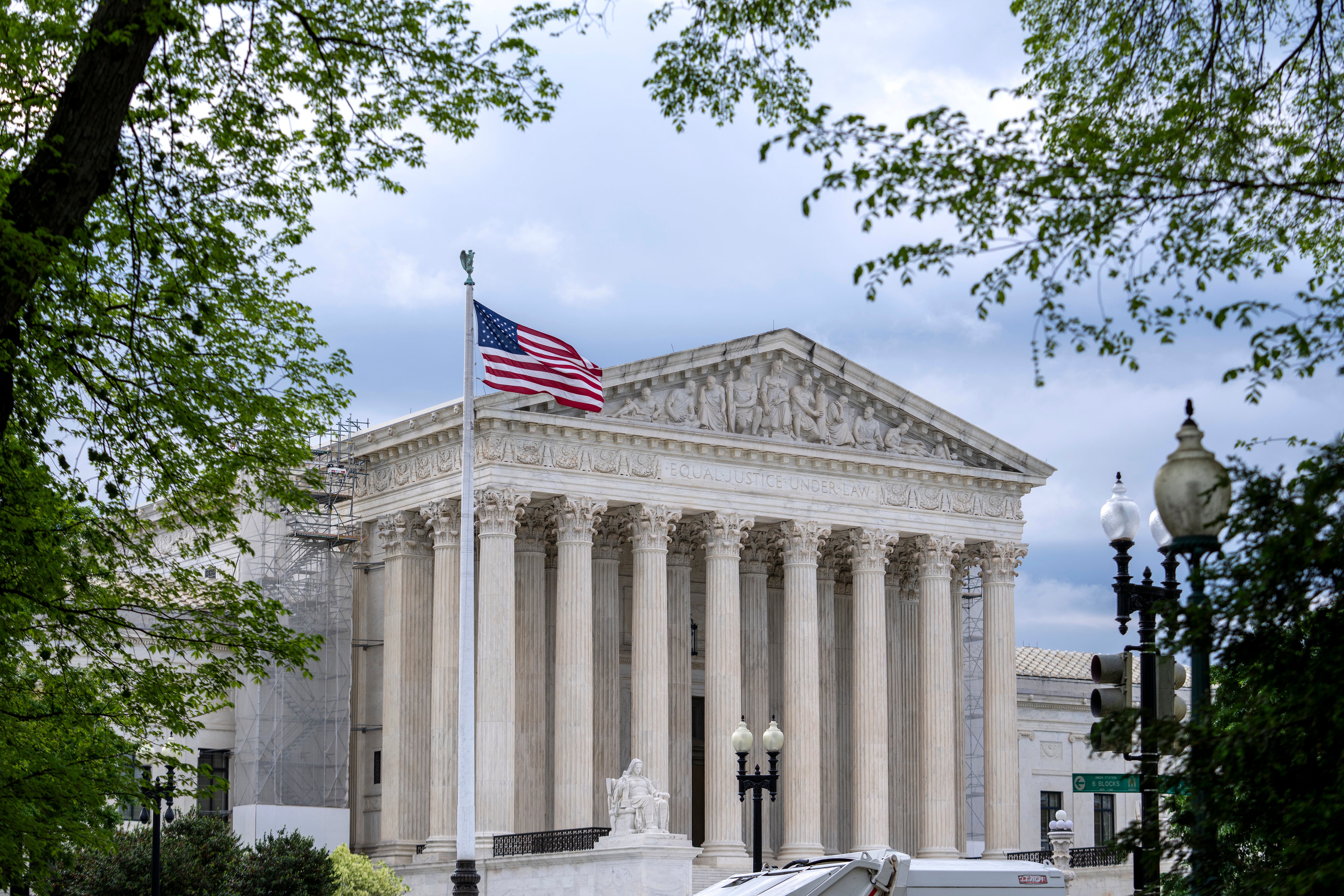WASHINGTON (AP) — A unanimous Supreme Court made it easier Thursday to bring lawsuits over so-called reverse discrimination, siding with an Ohio woman who claims she didn’t get a job and then was demoted because she is straight.
The justices’ decision affects lawsuits in 20 states and the District of Columbia where, until now, courts had set a higher bar when members of a majority group, including those who are white and heterosexual, sue for discrimination under federal law.
Justice Ketanji Brown Jackson wrote for the court that federal civil rights law draws no distinction between members of majority and minority groups.
“By establishing the same protections for every ‘individual’ — without regard to that individual’s membership in a minority or majority group — Congress left no room for courts to impose special requirements on majority-group plaintiffs alone,” Jackson wrote.
The court ruled in an appeal from Marlean Ames, who has worked for the Ohio Department of Youth Services for more than 20 years.
Though he joined Jackson’s opinion, Justice Clarence Thomas noted in a separate opinion that some of the country’s “largest and most prestigious employers have overtly discriminated against those they deem members of so-called majority groups.”
Thomas, joined by Justice Neil Gorsuch, cited a brief filed by America First Legal, a conservative group founded by Trump aide Stephen Miller, to assert that “American employers have long been ‘obsessed’ with ‘diversity, equity, and inclusion’ initiatives and affirmative action plans.”
Two years ago, the court’s conservative majority outlawed consideration of race in university admissions. Since taking office in January, President Donald Trump has ordered an end to DEI policies in the federal government and has sought to end government support for DEI programs elsewhere. Some of the new administration’s anti-DEI initiatives have been temporarily blocked in federal court.
Jackson’s opinion makes no mention of DEI. Instead, she focused on Ames’ contention that she was passed over for a promotion and then demoted because she is heterosexual. Both the job she sought and the one she had held were given to LGBTQ people.
Title VII of the Civil Rights Act of 1964 bars sex discrimination in the workplace. A trial court and the 6th U.S. Circuit Court of Appeals ruled against Ames.
The 6th circuit is among the courts that had required an additional requirement for people like Ames, showing “background circumstances” that might include that LGBTQ people made the decisions affecting Ames or statistical evidence of a pattern of discrimination against members of the majority group.
The appeals court noted that Ames didn’t provide any such circumstances.
But Jackson wrote that “this additional ‘background circumstances’ requirement is not consistent with Title VII’s text or our case law construing the statute.”













